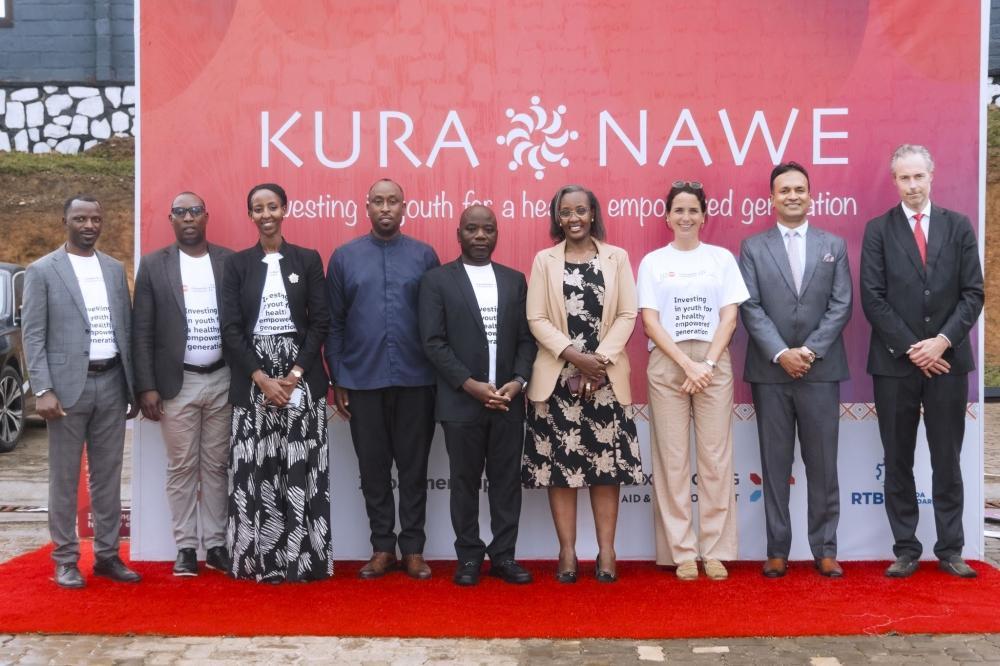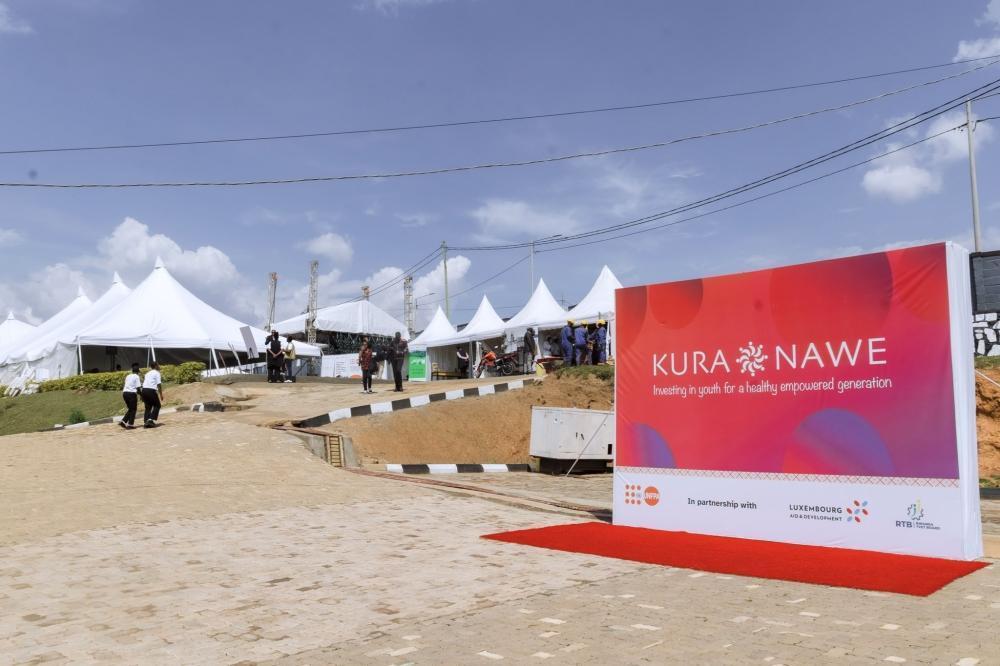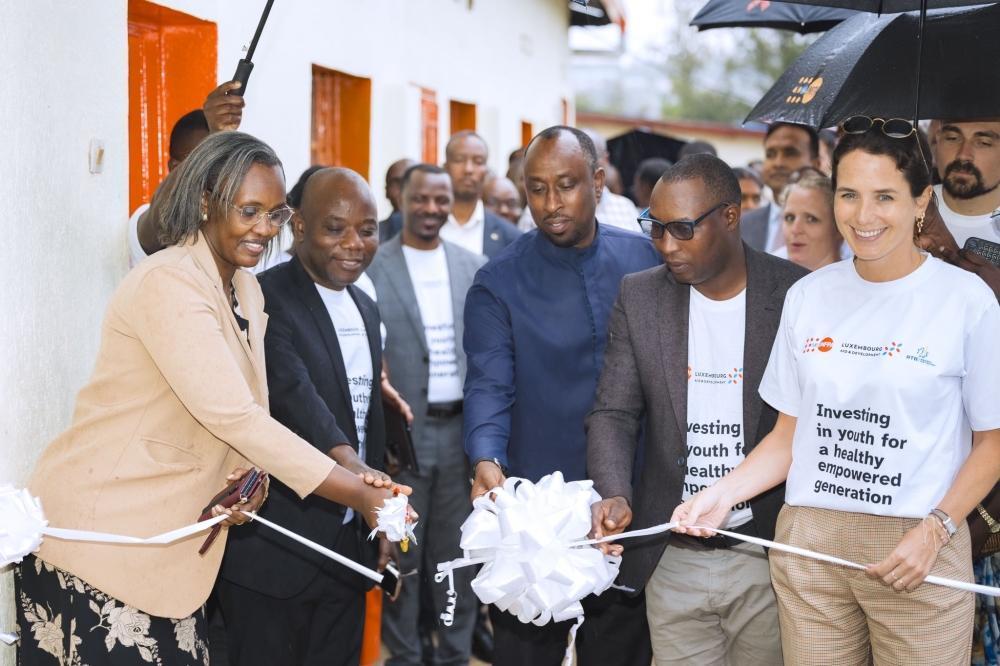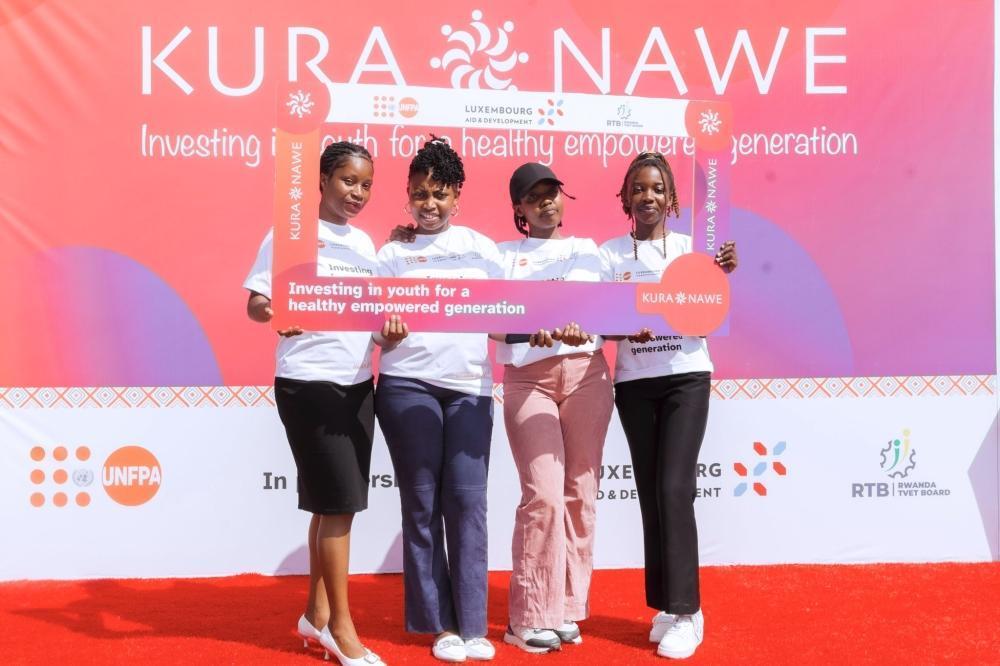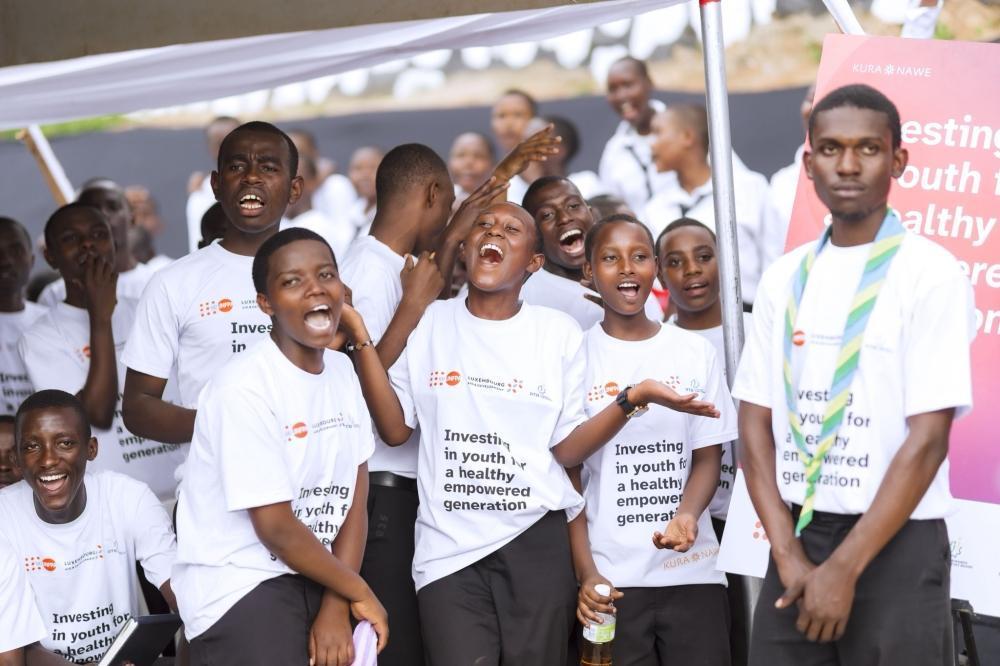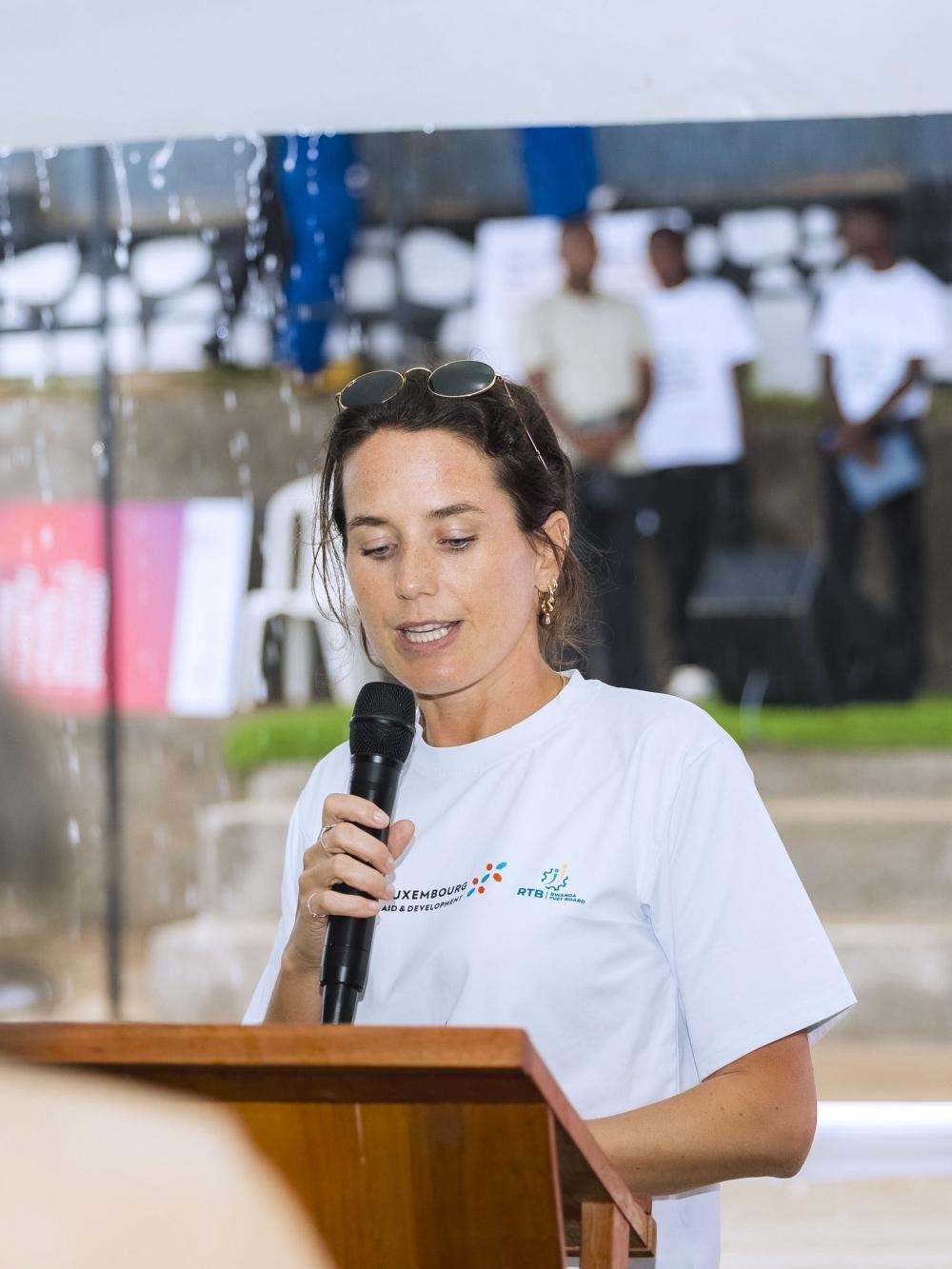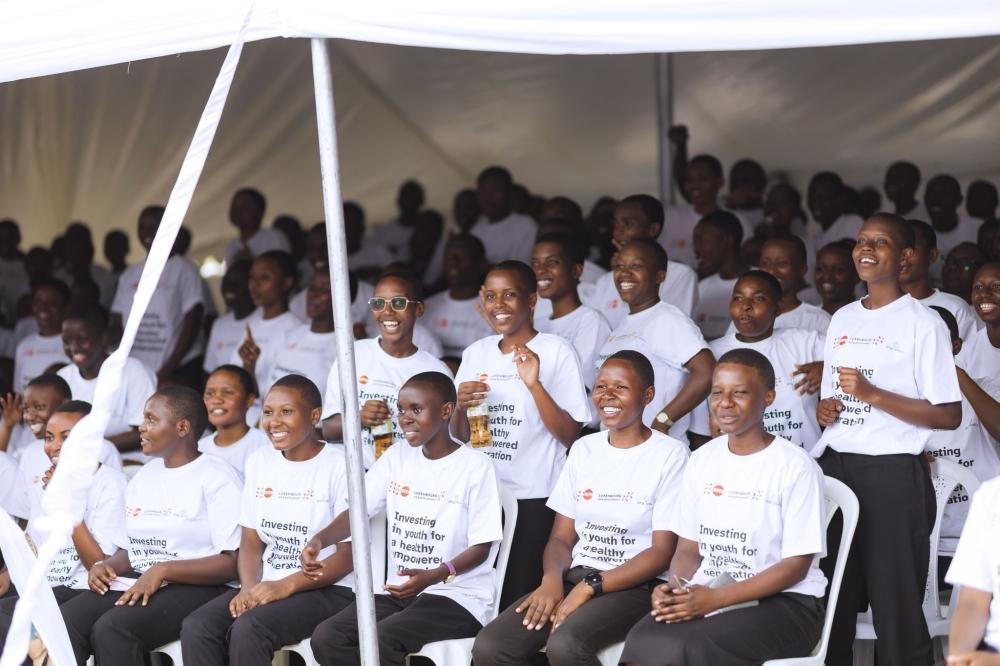Africa-Press – Rwanda. The Rwanda Technical Education Board (RTB), under the leadership of the Ministry of Education, and the United Nations Population Fund (UNFPA), launched the ‘Kura Nawe’ programme at the Gacuriro Technical Secondary School (TSS) in Gasabo District, Kigali.
The national initiative aims to boost adolescent and youth development by integrating primary healthcare, including sexual and reproductive health, mental health support, gender equality, and life skills into technical and vocational education and training (TVET).
‘Kura Nawe’ will establish care centres in designated TVET schools through which trained nurses and other health workers
Funded by the Government of Luxembourg, the programme is implemented by the United Nations Population Fund (UNFPA) in collaboration with the Ministry of Education, Ministry of Youth and Arts, Ministry of Health, Rwanda TVET Board, Rwanda Biomedical Centre and Civil society partners such as Society for Family Health, Imbuto Foundation and National Union for Disability Organisations in Rwanda (NUDOR).
Addressing attendees, Bernard Bayasese, Gasabo District Executive Administrator, said ‘Kura Nawe’ symbolises Rwanda’s vision of nurturing the holistic growth of young people. “The name itself shows its mission to invest in the well-being and success of young people. Innovation drives our economy and provides technical skills, but a thriving workforce also needs confidence, health, and well-being,” he said.
Officials aunch of Kura Nawe programme at the Gacuriro Technical Secondary School on November 5. Courtesy
Bayasese described the initiative as an integrated strategy that links students’ health with their capacity to learn. He urged school leaders to embrace the programme and serve as frontline champions of change. “To our young participants, this programme is for you. Embrace it, take advantage of the opportunities being offered, and let us work together to support your journey towards becoming skilled, responsible citizens,” he said.
Dr Olugbemiga Adelakin, UNFPA Country Representative, in his address, emphasised the fact that the project, with a design centered around the input provided by young people, aims to complement ongoing efforts to meet the developmental needs of young people as enunciated in Rwanda’s National Strategy for Transformation (NST2) through the blending of essential health needs into TVET education.
Participants pose for a photo at the launch of ‘Kura Nawe’ programme at the Gacuriro Technical Secondary School on November 5 in Gasabo.
The intervention will ensure that at this critical stage of their development, young people have the right information and services to thrive. And when young people thrive, they reach their full potential and this in turn helps accelerate their contribution to national development.
The UNFPA representative acknowledged and thanked the government of the Grand Duchy of Luxembourg for the generous financial support that is enabling this multi-sectoral collaboration with Rwanda’s education, Youth and health sectors instead of addressing issues through vertical lenses.
The national initiative aims to boost adolescent and youth development by integrating primary healthcare into TVET schools
Dr Adelakin explained that the initiative goes beyond technical skills, offering adolescents and youth the tools to make informed decisions about their bodies and lives as part of a 4-year intervention by the Government of the Grand Duchy of Luxemburg to support Rwanda’s effort to increase the number of Centers of Excellence for TVET in the country.
‘Kura Nawe’ will establish care centres in designated TVET schools through which trained nurses and other health workers will collaborate with district authorities to provide health services, training, and support on various health needs of young people including the promotion of mental health and gender equality through school clubs and the linking of the schools, communities and the families, among others.
Dr Adelakin reiterated that the project is also designed to improve strong collaboration between schools and parents making sure that whatever the students learn in school are reinforced at home in a supportive environment.
Charlotte Helminger, the Grand Duchy of Luxembourg’s Head of Mission in Rwanda and Charge d’áffairs speaks at the launch.
On her part, Charlotte Helminger, the Grand Duchy of Luxembourg’s Head of Mission in Rwanda and Charge d’áffairs, noted her country’s support for this initiative as a sign of shared priorities that the government of Luxembourg and the Rwandan government have in youth empowerment. She noted that the strong partnership between Rwanda and Luxembourg has demonstrated that development is most effective when it is locally-led and nationally owned.
Helminger added that the programme complements Luxembourg’s ongoing efforts to build a future-ready workforce by integrating sexual and reproductive health, gender equality, and inclusion into education. “Our support is driven by the belief that a nation’s greatest resource is its youth. Equipping them with technical and life skills prepares them not just for jobs, but for life. For learners, this programme is for you. Take it, use it, run with it. The future of Rwanda is written in your ambition, creativity, and courage,” she added.
The primary healthcare to be integrated into TVET schools , include, sexual and reproductive health, mental health support, gender equality, and life skills
Speaking on behalf of the Minister of Education, the Head of the Education Policy Department at the Ministry of Education, Rose Baguma, noted that when young people have access to the right information, services, and skills, both they and the country thrive. She thanked Luxembourg for the financial support and UNFPA for leading technical coordination, and for coordinating the meaningful engagement of all relevant key stakeholders, especially the umbrella body of people with disabilities and other members of the civil society.
She added that the initiative addresses early and unintended pregnancies, gender barriers, and gaps in parent-child communication, issues that can cause students to drop out. It especially reaches girls, young people with disabilities, and those from underserved backgrounds,” Baguma explained.
She encouraged the students to apply the information that they receive in their daily lives, to ask questions, and share what they learn with classmates, siblings, and parents in order to expand what works. The ‘Kura Nawe’ complements LuxDev’s ISHEMA programme, which is supporting the establishment of Centres of Vocational Excellence in three districts in collaboration with the government of Rwanda. The launch event concluded with an exhibition showcasing the programme’s features, including parent-child communication, comprehensive sexuality education, access to reproductive health services, early childhood development, and social inclusion.
In addition to the 20,000 students currently benefitting from the programme in five schools, three more TVET care centres will be established in TVET Centers of Excellence, and Comprehensive Sexuality Education will be integrated in the TVET curricula to ensure that the students continue to get the support that they need for life while in school.
For More News And Analysis About Rwanda Follow Africa-Press

